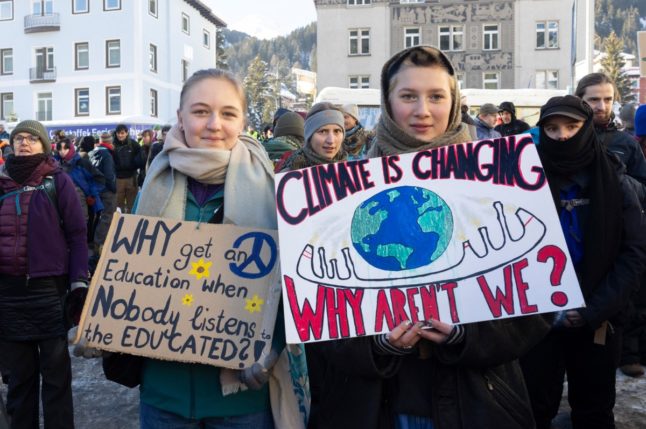Nowhere is this information more available than from Google, arguably the most ‘prolific’ search engine on earth — and maybe even the entire universe too!
As it does each year, the company has just published its list of most ‘googled’ terms for every counrty, including Switzerland.
So — ta da! — here are the five most-often searched terms in Switzerland in 2023.
At the top of the ‘hit’ parade is…
Chat GPT
“Few topics have received as much attention this year as AI chatbots,” Google wrote in a statement.
That’s because GPT is revolutionising the way we interact with technology, and Switzerland’s population, though sometimes slow to adapt to changes, doesn’t want to be left behind.
Credit Suisse shares
The collapse, and the subsequent takeover of Switzerland’s second-largest bank by its rival, UBS, made news worldwide, and it was a hot-button topic in Switzerland as well.
Though not exactly strangers to banking scandals, the Swiss — and especially those who held accounts or investments in Credit Suisse — were naturally concerned about the fate of their assets, and the Google searches reflect that.
READ ALSO: How safe is your money in a Swiss bank?
War between Israel and Gaza
That search term needs no explanation — the recent conflict between the two longtime enemies re-ignited the interest of people in Switzerland (and elsewhere) about what is going on in the Middle-East hotspot.
Rammstein
Ahead of the concert the German hard-rock group was scheduled to give in Bern in June, various Swiss groups attempted to have the performance cancelled amid accusations of abuse of power and sexual assault brought against Rammstein’s lead singer.
The concert took place anyway, but the controversy sent many people to their computers to look up what the debate was all about.
READ ALSO: Germany’s Rammstein facing calls to cancel Swiss concerts
Earthquake in Turkey
A massive earthquake struck Turkey (and neighbouring Syria) in February, causing widespread destruction and killing tens of thousands of people.
In its aftermath, Switzerland allowed a limited number of refugees from the affected regions to come to Switzerland on temporary, short-term basis.
You can see here what else people in Switzerland ‘googled’ in 2023.
And if you are wondering what other trends emerged during the year, especially the ones that reflected social interests of the population, this article will provide the answers:
READ ALSO: The four ‘Swiss’ words you really need to know in 2023



 Please whitelist us to continue reading.
Please whitelist us to continue reading.
Member comments